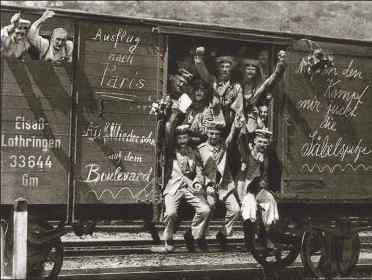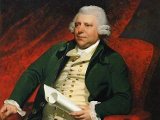Who Started World War 1

World War 1 was started by Austria-Hungary by declaration of war on Serbia on July 28, 1914 because the latter did not accept two of ten terms of the Austro-Hungarian ultimatum delivered to Belgrade following the assassination of Archduke Franz Ferdinand of Austria. However, Vienna intentionally made the ultimatum unacceptable as the decision for the war was already made. Within a week after the Austro-Hungarian declaration of war on Serbia, Europe was at war that grew into World War 1 by the end of the year.
The decisive move that plunged Europe and eventually most of the world into the war was made by Austria-Hungary but a great deal of responsibility for the outbreak of World War 1 also rests on Germany. The latter did not only support the Dual Monarchy in the war against Serbia but even encouraged it. The correspondence between Berlin and Vienna that summer clearly reveals that. Some historians speculate that Austria-Hungary and Germany perhaps had no intention of provoking a war with other European powers. They perhaps counted on a quick localized war in the Balkans and an international peace conference thereafter like in case of all other European conflicts since the Franco-Prussian War in 1870-1871.
The exact intentions of Austria-Hungary and Germany in the summer of 1914 remain a matter of debate but their statesmen were most certainly aware of the danger of a pan-European war. Serbia’s protector and the old Vienna’s rival, Russia could not afford not to support Serbia against Austria-Hungary which in turn would force Germany as Vienna’s ally to start a war against Russia. An eventual war between Germany and Russia would be undoubtedly followed by a French attack on Germany as the latter never got over the loss of Alsace and Loraine during the Franco-Prussian War. In addition, Franco-Russian alliance was joined by Britain in 1907 which had decided to prevent an eventual German domination on the Continent.
How well Germany was aware of the danger of a war with France and Russia clearly reveals the German military strategy for victory in case of a two-front war or the Schlieffen Plan that was developed as early as 1905. Berlin seems to have hoped that Britain would remain neutral although the Schlieffen Plan foresaw German invasion of France through Belgium which made the British nonintervention very unlikely as Britain was a guarantor of the Belgian neutrality. German historian Fritz Fischer even claims that Germany prepared for the war against France and Russia to establish itself as a world power and that it took advantage of the crisis following the assassination of Franz Ferdinand to start a world war. Fischer’s theory is not widely accepted by the historical community due to lack of evidence but there is no doubt that the German foreign policy became more aggressive and expansionist after the ascension of Wilhelm II to the German throne in 1888 and dismissal of Otto von Bismarck as German Chancellor two years later.
Russia played a role in the outbreak of World War 1 as well. The Tsarist government decided to support Serbia even before the official declaration of war by Austria-Hungary but its role in the outbreak of the Great War was primarily a reaction to the Austro-Hungarian aggression on Serbia. What would happen if Russia would not support Serbia is a matter of speculation. Whether World War 1 was a “limited war” that went out of control or a deliberate act remains unknown but Europe was by 1914 a powder keg waiting to explode.




